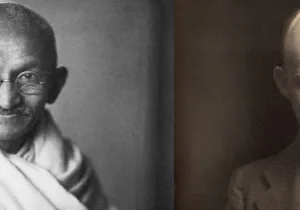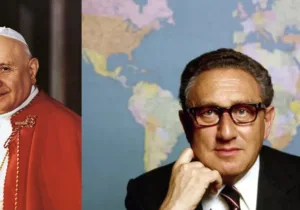Jimmy Carter, age 99, is America’s longest lived ex-president. Much of my life has been a reaction against him. In my youth, his presidency seemed disastrous. His public Christian piety and politics seemed feckless. Theologically and politically, I aspired to be the opposite of Carter.
Now that Carter is reaching the end of his long life, he merits deeper reflection and appreciation. I too am of course older and hopefully more evenhanded in evaluating a president whose post presidential years are a record 43 years.
Carter’s presidency was plagued by high inflation, unemployment, high interest rates, an energy crisis, gas lines, international turmoil, and despair about American decline. Carter, confronting collapsed public support, infamously delivered his American “malaise” speech. It complained, as George Will tartly described, that because he was unpopular that the country was sick.
Carter entered office warning against the “inordinate fear” of Communism. He pursued détente with the USSR that culminated with literally kissing Soviet chief Leonid Brezhnev on the lips as they signed the never ratified SALT II arms control treaty. Political cartoonist Pat Oliphant searingly portrayed Carter and Brezhnev in an old Western showdown. Brezhnev loomed large in a black hat, with multiple guns, and bullets strung across his torso. Jimmy Carter in contrast was tiny, dressed in white, and was flinging off his gun holster as he shouted: “Trust me, I trust you!”
America’s global position during Carter’s presidency was often terrifying. The Soviets reached parity in armaments as their proxies & other malevolent forces waged war around the world. Soviet-backed Sandinistas seized power in Nicaragua. Cuban troops fought in Angola. Marxists consolidated in Ethiopia. The Khmer Rouge committed genocide in Cambodia. The Soviets consolidated their presence in newly unified Communist Vietnam. After Carter refused to recognize Zimbabwe’s first black and pro-Western prime minister, new elections elevated leftist Robert Mugabe to a 37-year dictatorship.
The fall of the pro-USA Shah of Iran was more calamitous, with Islamists under Ayatollah Khomeini imposing a vicious theocracy. Iran’s seizing American diplomats as hostages for over a year, with Carter appearing powerless, was a low point in America’s global stature. Carter focused on the hostage crisis in ways that temporarily helped his reelection but damaged American interests. The catastrophic failure of a hostage rescue attempt thanks to poor planning and failed equipment further sank American prestige. The Shah, in an American hospital for cancer, was forced to become an international nomad, further embarrassing America. Exploiting the power vacuum, the Soviets invaded Afghanistan.
Carter initially foreswore the “imperial presidency,” carrying his own luggage and umbrella, avoiding limousines, addressing the nation in a sweater, and walking to his Washington, DC church to teach Sunday school. His ostensible public humility seemed showy. He lost reelection to Ronald Reagan in a landslide. When I was a teenager and young man, Reagan’s strength and panache contrasted with Carter’s irresolution.
Like Herbert Hoover and Richard Nixon, who also left office amid crisis and unpopularity, Carter dedicated his post presidential years to restoring his reputation. His political and religious posturing seemed like an extension of a failed presidency. He coddled leftist and anti-American dictators in his bid for world peace. He frequently criticized Israel while sparing of Fidel Castro. Even Democratic presidents rued Carter’s diplomatic interventions.
Carter as a “born again” Baptist was famously devout. But he disdained the new Religious Right (which arose partly in reaction against him), criticized the pro-life movement, eventually supported gay marriage, and repeatedly “resigned” from the Southern Baptist Convention. He seemed more Mainline Protestant than evangelical. He admired and quoted Reinhold Niebuhr. But Carter was more liberal Baptist moralist than Christian Realist. Unlike Niebuhr, he largely saw politics as a crusade for righteousness, not a balance of contending interests.
Evangelicals supported Carter in 1976 as one of their own. But in 1980 they helped ensure his defeat as they identified more with Reagan. Carter was Hoover-like, prim, dour and admonishing, while Reagan posed as the hero of his youth, FDR, preternaturally optimistic amid daunting challenges. If Carter was the Sunday school teacher (literally and figuratively), Reagan was the cool church youth group leader, or at least a Hollywood version.
But there is more to the story. Like Hoover, Carter was not fun or charming. But he was honest, diligent, endlessly hardworking, an engineer who always wanted to organize for good. After his presidency, Carter promoted and actively volunteered with Habitat for Humanity, which builds homes for low-income people. He founded the Carter Center to advocate for international human rights. Perhaps its greatest accomplishment is saving millions of people in the Global South from Guinea worm disease. Unlike other ex-presidents, Carter lived modestly, stayed in his same pre-presidential house in small town Georgia, maintaining lifelong friendships, sustaining a happy 77-year marriage with his devoted Rosalyn, and teaching Sunday school until recently. He befriended his former opponent President Gerald Ford, a relationship he described in a moving eulogy at Ford’s funeral as the “most intensely personal between any two presidents in history.” Carter cited their shared Christian faith, which was creedally orthodox but ethically more modern.
Carter’s presidency had accomplishments. He hosted the momentous Camp David Peace Accord between Egypt and Israel. He deregulated the airlines leading to lower prices. He instituted tough and politically costly anti-inflation measures. After the Soviets invaded Afghanistan, he began an increase in defense spending that ultimately reversed the Cold War in America’s favor. His advocacy for human rights sometimes destabilized friends and strengthened more repressive enemies. But it also freed political prisoners and reiterated American ideals.
An internal Reagan campaign analysis concluded that Carter would not, to win the election, negotiate a sham deal with Iran to free the hostages but would instead abide national honor and interests, which he did. When Iran released the U.S. hostages after Reagan’s inauguration, Carter flew to Germany to welcome them. Some were angrily confrontational. He listened, extended sympathy, greeted each one and spoke to their families on the phone. Ultimately, they applauded him. In some ways he had sacrificed his presidency, avoiding retaliatory military action, for their safety.
Despite his errors, Carter is a sincere humanitarian with a deep faith in God. He was often wrong but with earnestness, not malevolence. He tirelessly worked to make the world better and sometimes succeeded, which I now admire. His policies as president are mostly not models of sound statecraft. But how he lived as man across a century is a model for all. Let’s pray he ends his long earthly sojourn, nearing a remarkable 100 years, full of grace and assurance of divine love.







 Sponsor a student for Christianity & National Security 2024
Sponsor a student for Christianity & National Security 2024